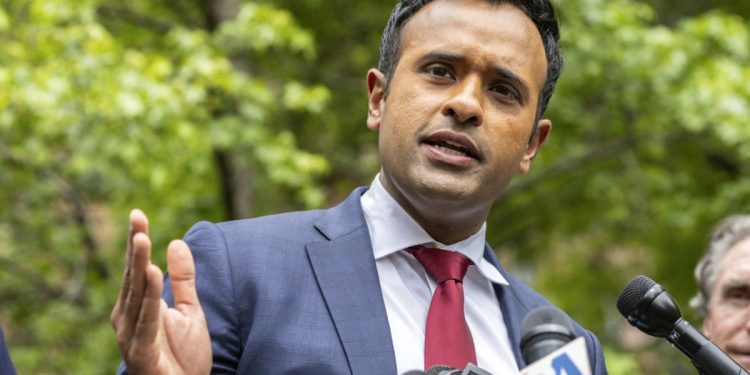According to court filings on Thursday, a man from New Hampshire who was charged with threatening the lives of presidential candidates last year has been found dead while a jury was in the process of deciding his verdict.
On Tuesday, the jury started deliberating the case against 30-year-old Tyler Anderson from Dover, following a trial that started on Monday. Anderson’s lawyer did not immediately respond to a request for comment. However, a court filing revealed that “the government has learned that the defendant is deceased.” As a result, prosecutors have requested to dismiss the indictment, given that Anderson has passed away.
In December, a federal grand jury indicted Anderson with three counts of using interstate commerce to send threats. If convicted, he could face a maximum sentence of five years in prison, three years of supervised release, and a fine of up to $250,000 for each charge.
The candidates involved were not named by the U.S. Attorney’s office. However, when Anderson was arrested, a spokesperson for Vivek Ramaswamy, a Republican candidate, confirmed that the texts were directed at their campaign.
On December 9th, Anderson was taken into custody and later released on December 14th. As part of his release, a federal judge outlined a set of conditions that Anderson must adhere to, which includes refraining from making contact with any presidential candidates or their respective political campaigns.
The court has mandated Anderson to take all of his prescribed medications, as he was undergoing mental health treatment at the time.
When Anderson was arrested, a court document was filed that contained a screenshot of texts from December 6th. These texts included a threat to carry out a mass shooting in response to an invitation to attend an event for a candidate who is not afraid to speak their mind. The event was referred to as “Tell it Like It Is Town Halls” by Republican Chris Christie.
The Christie campaign expressed gratitude towards law enforcement officials for handling the aforementioned threats, according to a spokesperson.
According to a spokesperson from the U.S. Department of Justice, the agency maintains its policy of not disclosing the names of victims in order to uphold their right to privacy and fulfill their obligations under the Crime Victims Rights Act.
According to a court document, Anderson informed the FBI during an interview that he had sent comparable texts to “multiple other campaigns.”
According to the charges, identical messages were sent to two separate candidates prior to the Ramaswamy messages, one on November 22 and the other on December 6.










